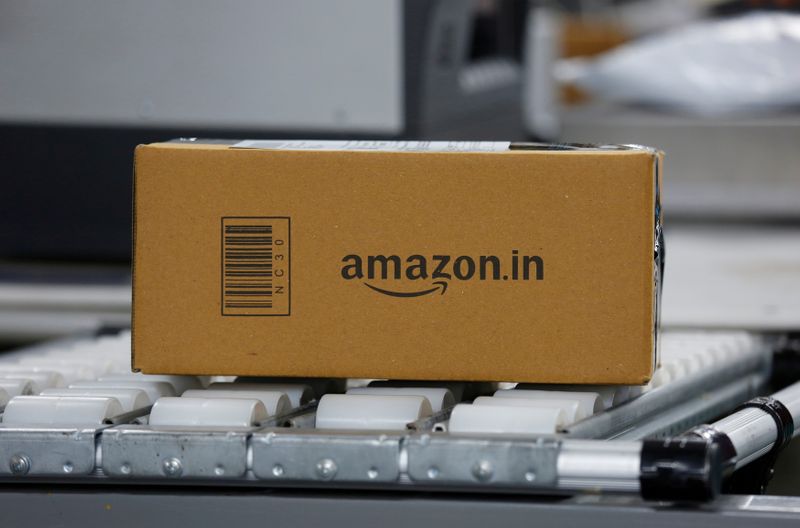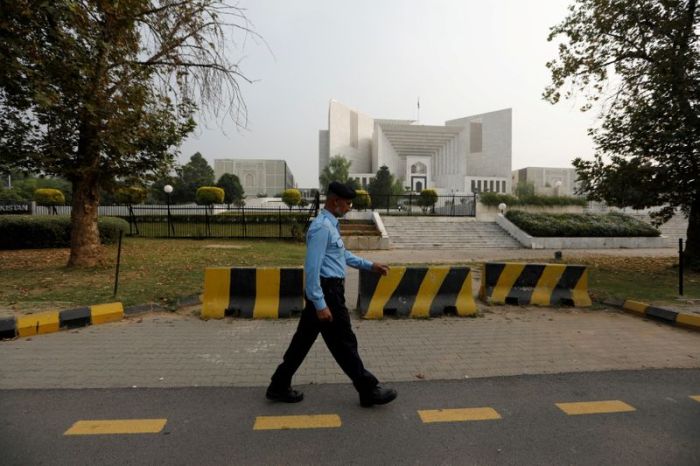NEW DELHI (Reuters) – A U.S. lobby group which represents firms including Amazon.com and Walmart has urged India not to tighten foreign investment rules for e-commerce companies again, according to a letter seen by Reuters.
India is considering revising the rules after traders in the country accused Amazon’s Indian division and Walmart’s Flipkart of creating complex structures to bypass investment regulations, Reuters reported this month.
The U.S. companies deny any wrongdoing.
India only allows foreign e-commerce players to operate as a marketplace to connect buyers and sellers but local traders say the U.S. giants promote select sellers and offer deep discounts, which hurts business for smaller local retailers.
In 2018, India changed its foreign direct investment (FDI) rules to deter foreign firms offering products from sellers in which they have an equity stake.
The government is now considering tightening those rules again to include sellers in which a foreign e-commerce firm holds an indirect stake through its parent, Reuters reported.
Such a change could hurt Amazon as it holds indirect stakes in two of its biggest online sellers in India, Cloudtail and Appario.
Citing the Reuters story in a Jan. 28 letter, the U.S.-India Business Council (USIBC), part of the U.S. Chamber of Commerce, urged the Indian government not to make any more material restrictive changes to e-commerce investment rules.
“Any further changes in FDI rules would limit e-commerce firms from leveraging their scale,” USIBC said in the letter seen by Reuters.
USIBC also asked India’s Department for Promotion of Industry and Internal Trade (DPIIT) to engage in substantive consultation with companies on e-commerce regulation.
USIBC and DPIIT did not respond to a request for comment.
After the Reuters story was published last week, the Confederation of All India Traders (CAIT), which represents millions of brick-and-mortar retailers, said it has received assurances from India’s commerce minister that policy changes were in the offing.
On Saturday, CAIT in a statement said the USIBC letter was an “uncalled for intervention” which runs against the interest of 85 million traders. “Such a hue and cry is not understandable,” CAIT said, adding that it had also written a letter in protest to the USIBC President.
The government is also considering prohibiting online sales by a seller who, for example, purchases goods from an e-commerce entity’s wholesale unit, or any of its group firms, and then sells them on the entity’s websites, Reuters has reported.
The 2018 rule changes soured relations between India and the United States, as Washington said the policy changes favoured local e-commerce retailers over U.S. companies.
Industry sources told Reuters on Friday that the prospects of such frequent policy changes in India have alarmed Amazon, which has committed $6.5 billion in investments in India, and Walmart, which invested $16 billion in Flipkart in 2018.
The USIBC letter said “investments require reasonable policy predictability and fair treatment”.
“USIBC is concerned that material changes to the FDI policy creates uncertainty and impacts investor confidence, as well as business continuity of existing investments,” it said.
Amazon declined to comment on the USIBC letter. Walmart and Flipkart did not respond to requests for comment.
(Reporting by Aditya Kalra in New Delhi; Editing by Euan Rocha and David Clarke)

























